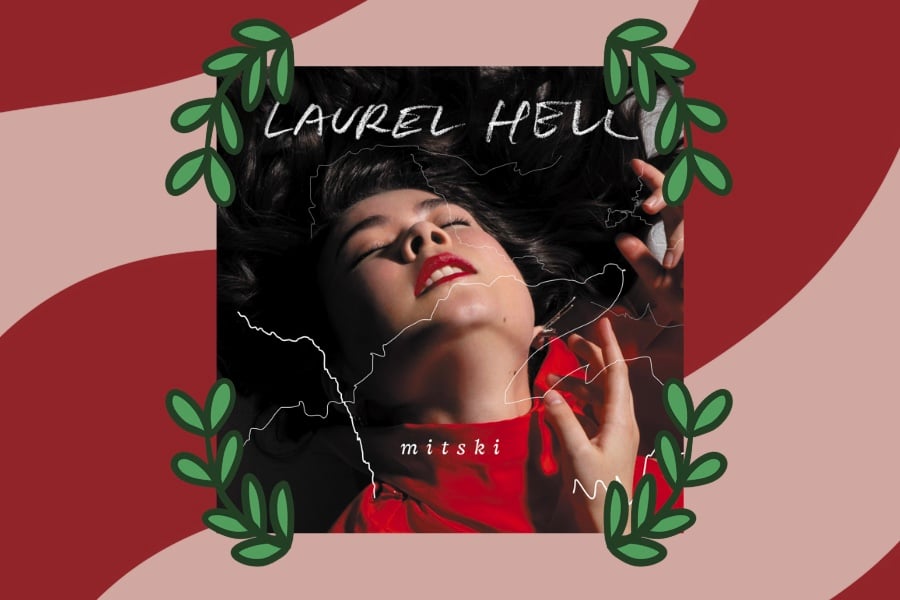Liner Notes: On “Laurel Hell,” Mitski gets existential about her relationship with music
Mitski’s latest album pulls threads from across her discography while also treading new territory.
February 13, 2022
When Japanese-American singer-songwriter Mitski Miyawaki released the first single of her sixth album in October 2021, my first listen felt like I was looking into a mirror.
The song, “Working for the Knife,” details the constant pressure Mitski has felt as she navigates the music industry. Under the watchful eye of the public, she felt an overwhelming sense of dread and duty, which resulted in her decision to take a hiatus from music in 2019. When she released the song, it was her re-entry into music ahead of the release of her latest album “Laurel Hell” on Feb. 4. But it also served as a thoughtful rumination on the constant conflict between obligation and inspiration.
At the time, I was undergoing an internal conflict about my life trajectory that stemmed from burnout, much like Mitski faced when she began her hiatus. After my first listen of “Working for the Knife,” I knew I was in for a ride, and the song aptly set up the emotions at the forefront of this era. Although a contractual obligation for a sixth album brought Mitski back into the public eye, she has still embraced the rollout of “Laurel Hell” with full force.
Over the course of her career, Mitski has dealt with the label of a “sad girl” artist, with many listeners pigeonholing her music as songs to cry to — not dance to. To characterize her music in this way is reductive. Mitski’s music spans across all sorts of topics and genres, and this album is the perfect example of that. It pulls threads from across her discography while also treading new territory, creating a tracklist that reflects the conflict Mitski has felt with her art in recent years.
Some of the songs on this album — such as my personal favorite “The Only Heartbreaker,” “Love Me More” and standout track “Should’ve Been Me” — have a danceable quality tinged with an air of mourning for something lost. But between expansive synths distinctly reminiscent of ’80s pop music, Mitski weaves in more intimate, introspective songs like album opener “Valentine, Texas.”
This album doesn’t take the crown of my favorite album in the Mitski canon, a distinction which currently belongs to her 2014 effort “Bury Me at Makeout Creek.” But its departure from the more narrative style that was featured heavily in “Be the Cowboy,” which was critically lauded and brought attention to her work, makes a lot of sense and creates a strong addition to her discography. Amid her hiatus, more listeners have also discovered her music, including through TikTok, so the emotions she’s grappling with throughout this album have only heightened.
It’s unclear whether the creation of this album has reignited Mitski’s love for music, or if the rollout and tour cycle will cement her decision to quit. But if this is Mitski’s final project before she departs the music business permanently, I am more than satisfied.
Email: [email protected]
Twitter: @jacobnfulton
Related stories:
— Liner Notes: Bastille escapes to dystopia on “Give Me the Future”
— Liner Notes: Adele chronicles divorce in “30”
— Liner Notes: Taylor Swift begins again with “Red (Taylor’s Version)”


